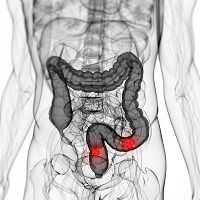Article
Testosterone: Potential Colon Cancer Contributor?
Author(s):
Researchers from the University of Missouri recently published study results indicating testosterone may play an integral role within colon cancer tumor formation.

Researchers from the University of Missouri recently published study results indicating testosterone may play an integral role within colon cancer tumor formation.
According to study results published in the Proceedings of the National Academy of Sciences, researcher James Amos-Landgraf, an assistant professor of veterinary pathobiology in the MU College of Veterinary Medicine, observed normal levels of naturally occurring colon cancer in a group of male rats. After he extracted testosterone from the rats he reported a significant decrease in their colon cancer rates. To confirm his finding, he re-injected testosterone into the rats and found that their colon cancer rates returned to their normal levels. According to Amos-Landgraf, “by showing that removing testosterone from rats leads to a drastic decrease in colon cancer susceptibility, it appears that male hormones may actually contribute to colon tumor growth rather than female hormones being protective.”
Amos-Landgraf stated, “Previously, scientists believed that female hormones may have lent some sort of protection against tumor susceptibility. However, by showing that removing testosterone from rats leads to a drastic decrease in colon cancer susceptibility, it appears that male hormones may actually contribute to colon tumor growth rather than female hormones being protective.”
He also noted that higher rates of colon cancer in postmenopausal women could be further evidence that supports testosterone as a contributing factor in colon cancer tumor growth.
“All women have some level of testosterone in their bodies naturally, but those levels typically are much lower than estrogen and other female hormones. Once women experience menopause and their female hormone levels decrease, their testosterone levels become relatively higher. This corresponds to the time when they begin to experience higher rates of colon cancer and could be a sign of a relationship between testosterone levels and colon tumor growth,” concluded Amos-Landgraf.
Further research is underway to explore the genetic traits that are linked to the difference in predisposition to colon cancer between the sexes.





